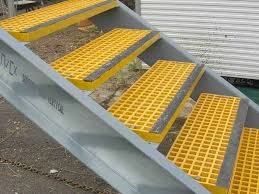
-
 Afrikaans
Afrikaans -
 Albanian
Albanian -
 Amharic
Amharic -
 Arabic
Arabic -
 Armenian
Armenian -
 Azerbaijani
Azerbaijani -
 Basque
Basque -
 Belarusian
Belarusian -
 Bengali
Bengali -
 Bosnian
Bosnian -
 Bulgarian
Bulgarian -
 Catalan
Catalan -
 Cebuano
Cebuano -
 China
China -
 China (Taiwan)
China (Taiwan) -
 Corsican
Corsican -
 Croatian
Croatian -
 Czech
Czech -
 Danish
Danish -
 Dutch
Dutch -
 English
English -
 Esperanto
Esperanto -
 Estonian
Estonian -
 Finnish
Finnish -
 French
French -
 Frisian
Frisian -
 Galician
Galician -
 Georgian
Georgian -
 German
German -
 Greek
Greek -
 Gujarati
Gujarati -
 Haitian Creole
Haitian Creole -
 hausa
hausa -
 hawaiian
hawaiian -
 Hebrew
Hebrew -
 Hindi
Hindi -
 Miao
Miao -
 Hungarian
Hungarian -
 Icelandic
Icelandic -
 igbo
igbo -
 Indonesian
Indonesian -
 irish
irish -
 Italian
Italian -
 Japanese
Japanese -
 Javanese
Javanese -
 Kannada
Kannada -
 kazakh
kazakh -
 Khmer
Khmer -
 Rwandese
Rwandese -
 Korean
Korean -
 Kurdish
Kurdish -
 Kyrgyz
Kyrgyz -
 Lao
Lao -
 Latin
Latin -
 Latvian
Latvian -
 Lithuanian
Lithuanian -
 Luxembourgish
Luxembourgish -
 Macedonian
Macedonian -
 Malgashi
Malgashi -
 Malay
Malay -
 Malayalam
Malayalam -
 Maltese
Maltese -
 Maori
Maori -
 Marathi
Marathi -
 Mongolian
Mongolian -
 Myanmar
Myanmar -
 Nepali
Nepali -
 Norwegian
Norwegian -
 Norwegian
Norwegian -
 Occitan
Occitan -
 Pashto
Pashto -
 Persian
Persian -
 Polish
Polish -
 Portuguese
Portuguese -
 Punjabi
Punjabi -
 Romanian
Romanian -
 Russian
Russian -
 Samoan
Samoan -
 Scottish Gaelic
Scottish Gaelic -
 Serbian
Serbian -
 Sesotho
Sesotho -
 Shona
Shona -
 Sindhi
Sindhi -
 Sinhala
Sinhala -
 Slovak
Slovak -
 Slovenian
Slovenian -
 Somali
Somali -
 Spanish
Spanish -
 Sundanese
Sundanese -
 Swahili
Swahili -
 Swedish
Swedish -
 Tagalog
Tagalog -
 Tajik
Tajik -
 Tamil
Tamil -
 Tatar
Tatar -
 Telugu
Telugu -
 Thai
Thai -
 Turkish
Turkish -
 Turkmen
Turkmen -
 Ukrainian
Ukrainian -
 Urdu
Urdu -
 Uighur
Uighur -
 Uzbek
Uzbek -
 Vietnamese
Vietnamese -
 Welsh
Welsh -
 Bantu
Bantu -
 Yiddish
Yiddish -
 Yoruba
Yoruba -
 Zulu
Zulu
Corrosion Resistance of Fiberglass Ducts for Enhanced Durability in Challenging Environments
Evaluating the Corrosion Resistance of Fiberglass Ducts
Fiberglass ducts have emerged as a popular choice in various industries due to their unique properties, including lightweight construction, ease of installation, and remarkable corrosion resistance. Corrosion is a critical concern in duct systems, especially in environments exposed to moisture, chemicals, or high humidity. Understanding the corrosion resistance of fiberglass ducts can help industries make informed decisions about their HVAC (Heating, Ventilation, and Air Conditioning) systems and other applications.
One of the primary reasons for choosing fiberglass ducts is their composition. Made from glass fibers and resin, fiberglass does not rust or corrode like traditional metal ducts. This quality is particularly advantageous in industries like chemical processing, wastewater treatment, and food manufacturing, where ducts are often exposed to aggressive atmospheres. The inherent properties of fiberglass allow it to withstand the corrosive effects of acids, alkalis, and other chemical agents.
Moreover, fiberglass ducts can be manufactured with various resin types, including epoxy and polyester, which enhance their corrosion resistance. These resins provide a protective barrier, preventing moisture and chemicals from penetrating the material. For instance, epoxy-based fiberglass is known for its superior chemical resistance, making it ideal for applications where exposure to strong solvents or acids is a concern.
fiberglass duct corrosion resistance

In addition to chemical resistance, fiberglass ducts are also resistant to environmental factors such as mold and mildew. This characteristic is crucial in maintaining indoor air quality, as mold growth can lead to respiratory issues and other health concerns. Using fiberglass ducts minimizes the risk of microbial contamination, contributing to a safer and healthier environment.
Furthermore, fiberglass ducts have an excellent insulating property, reducing energy loss. This quality is critical in temperature-sensitive environments, helping to maintain consistent airflow without significant heat exchange. Their thermal insulation ability also prevents condensation, further protecting against potential corrosion caused by moisture accumulation.
It is important to note, however, that while fiberglass ducts offer significant corrosion resistance, they are not entirely exempt from damage. Factors such as physical impact, UV exposure, and improper installation can compromise their integrity. Therefore, regular inspection and maintenance are recommended to ensure long-term performance.
In conclusion, the corrosion resistance of fiberglass ducts positions them as an effective choice for a range of applications in demanding environments. Their ability to withstand moisture, chemicals, and temperature fluctuations makes them an ideal solution for industries that require durable and reliable ducting systems. By selecting fiberglass ducts, companies can not only enhance operational efficiency but also ensure longevity in their HVAC systems and other applications.
Latest news
-
High-Quality Fiberglass Car Bodies Durable GRP Car & Boat Body SolutionsNewsJul.08,2025
-
High-Quality Fiberglass Dual Lamination Product Manufacturer Durable FRP & GRP Dual Lamination SolutionsNewsJul.08,2025
-
Rectangular Tank with Dimensions for GRP Calculation Custom Fiberglass GRP Rectangular TanksNewsJul.07,2025
-
High-Quality Fiberglass Weir Custom FRP Weir & Fiberglass Tanks ManufacturerNewsJul.07,2025
-
CPVC FRP Pipe A Reliable Choice for Industrial Applications High Strength & Corrosion ResistanceNewsJul.07,2025
-
Fiberglass Scrubber for Effective Cleaning and Stain Removal – Superior Performance in Various ApplicationsNewsJul.06,2025









